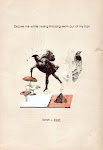[Silence.] [A week later the village was evacuated.] [She starts crying.] [She is silent.] [Silent.] [Silent.] [Long silence.] [She is silent for a long time.] [She is silent.] [She becomes incomprehensible.] [She has trouble breathing.] [She is silent for a long time.] [She stands up, goes over to the window.]
[Starts crying.] [Cheers up suddenly.] [Starts crying.] [Starts crying.]
[Communist youth league.] [Silent.] [Closes his eyes.] [Laughs.] [Laughs.] [Laughs.] [Starts singing.] [Suddenly serious.] [in Moscow] [Starts crying.] [Starts crying.] [Cries.] [Cries.] [Cries.] [Cries.]
[Breaks into tears and completely stops talking.] [Silent. Then cries for a long time.] [Silent again.] [Silent.] [But she adds a bit more.] [She smiles suddenly.] [When we’re saying goodbye, she says some more.] [This effect occurred throughout the region and was presumably caused by toxic radiation.] [Stops.] [Tries not to cry.] [Cries.] [Tries again not to cry.] [Breaks down, Cries.] [The year of Stalin’s Great Terror.] [Silent. Smokes.] [Stops.] [Continues.] [Stops.]
[Laughs.] [Stops short, I can see she doesn’t want to talk.] [Either she’s listening to herself, or arguing with herself.] [After a pause.]
[Silent for a while.] [Laughs suddenly.] [Serious now.] [Silent.] [There’s a long pause in the conversation.] [Stops.] [a space launch center.] [He thinks.] [He is silent.] [Becomes upset.]
[In the days after the accident the pines and evergreens around the reactor turned red, then orange.] [He is in despair, then silent.]
[Valery] [head of the commissioned Chernobyl investigation who actually hanged himself in 1988, on the two-year anniversary of the explosion]
[She is silent.] [Stops.] [as does Bazarov in Turgenev’s Fathers and Sons] [Smiles.] [Cries.] [Takes a break.] [Laughs.] [Laughs.] [Laughs.]
[As he talks he spreads photographs on the table, chair, windowsills: giant sunflowers the size of carriage wheels, a sparrow’s nest in an empty village, a lonely village cemetery with a sign that says, “High radiation. Do not enter.” A baby carriage in the yard of an abandoned house, the windows are boarded up, and in the carriage sits a crow, as if it’s guarding its nest. The ancient sight of cranes over a field that’s gone wild.] [points to the photographs.] [Points again to the photographs.] [Calms down a little.] [Boris] [Gets upset again.] [Silent.] [Goes on for some time but it is impossible to understand what he’s saying.] [Considers this.]
[Thinks.] [Quiet.] [Leonid] [a city in the Southern Urals near the Mayak weapons facility, contaminated and largely evacuated after a nuclear waste tank exploded in 1957] [Silent.] [Extended silence.] [Thinks.] [1986]
[She is silent for a long time.] [Suddenly she smiles.] [She is silent.] [She is silent again.] [Stops.] [Quietly.] [We drink tea and she shows me the family photographs, the wedding photographs. And then, as I’m getting up to go, she stops me.]
-Complete author inserts in monologues from
Voices from Chernobyl
 To me the most enthralling part was the wall projections in which (mostly) survivors recounted their steps that day, stories both chilling and very moving. There are also phone calls from the dead. There’s a large, meandering area with a timeline along the walls, also offering artifacts and various media. It is informative and grimly fascinating.
To me the most enthralling part was the wall projections in which (mostly) survivors recounted their steps that day, stories both chilling and very moving. There are also phone calls from the dead. There’s a large, meandering area with a timeline along the walls, also offering artifacts and various media. It is informative and grimly fascinating. 




